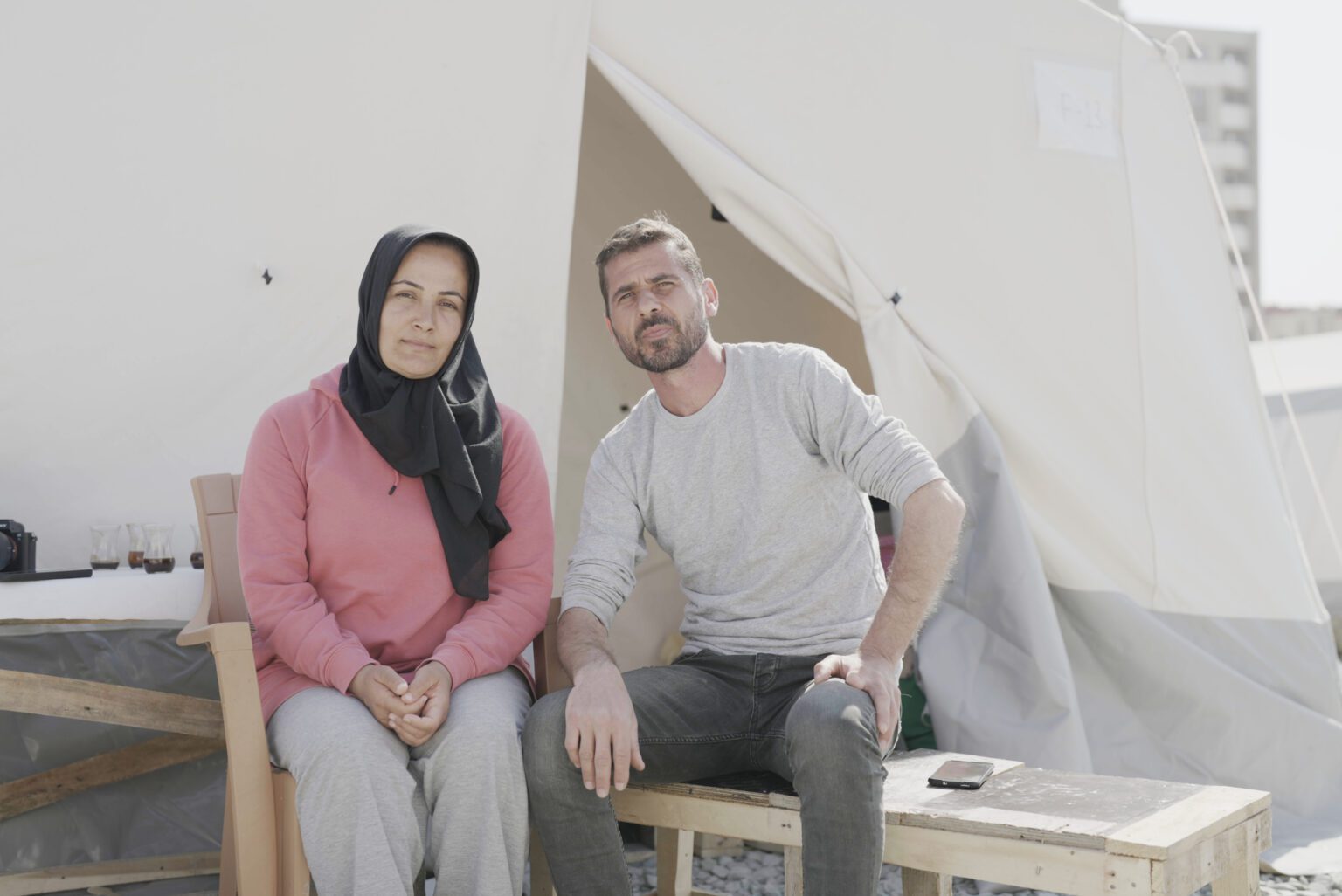Global Courant 2023-05-14 02:00:00
Demir now lives near their old home in a container city – made up of prefabricated housing units that resemble shipping containers – with his two teenage daughters. Demir said he would not vote for Erdogan despite his apology for the government’s slow response in the aftermath of the earthquakes and his pledge to build hundreds of thousands of new homes in the most affected areas.
Elsewhere, Ferdi Baran, whose apartment building in Hatay was in ruins in seconds, said he felt “far” from any candidates but leaning towards Erdogan.
“I feel insulted by the government for not being able to intervene efficiently in the aftermath of the earthquake,” said Beran, 40, a furniture maker who now lives with his wife Sevsem and two children in a tent camp near their old home. lives.
He also said he was offended by the opposition which “actually did nothing but make propaganda against the government”.
Sevsem Baran and Ferdi Baran are in their tent in a tent city in Hatay province, Turkey.Neyran Elden/NBC News
But he said Erdogan and his ruling AK party may be able to repair and rebuild earthquake-hit areas faster than a coalition of governing parties.
Outside Turkey, the result will be watched with interest. The opposition alliance has indicated it wants to restore ties with the United States, the European Union and NATO. Erdogan’s government has blocked Sweden’s entry into NATO, so if he loses, that veto could end.
In the country, Erdogan is likely to have the support of Turkey’s Syrian population, which numbers 3.7 million, making it the world’s largest refugee community.
Once welcomed as they fled their country’s civil war – now in its 12th year – the call for Syrian refugees to return home is sparking new life amid a shortage of housing and shelter following the earthquake.
Both presidential candidates running against Erdogan have promised to send them back. Ogan, who is supported by an anti-migrant party, has said he would use “force if necessary”, while Kilicdaroglu has said he would voluntarily repatriate them.
Erdogan barely mentioned the migration issue during the campaign trail. But faced with a wave of backlash against refugees, his government is looking for ways to resettle Syrians.
Nasir Muhammad said he “didn’t want to think about what would happen” if Erdogan lost because even though he obtained Turkish citizenship six years ago, some people still considered him a Syrian refugee.
“My Turkish neighbor told me to pack my bags and prepare myself to leave if Erdogan loses the election,” said 51-year-old Muhammad at the barber shop he set up in the southern city of Mersin on Thursday.
Marwan al-Hassan, who opened a car dealership in Istanbul after his home and business in Hatay were destroyed by the earthquakes, said he could not return to Syria “because my life and the lives of my children are in danger there”. Hassan, 45, said President Bashar al-Assad’s regime would kill him if he returned. If it gets worse, he said, he would try to go to Europe.
While there is “a strong wave of nationalists and immigrants across the board,” according to Karabekir Akkoyunlu, a lecturer in Middle Eastern politics at SOAS University of London, the economy in Turkey, where inflation topped 85% last year, is “the single most important reason why Erdogan faces possible defeat in the polls.”
“Turkey has been in an economic crisis since 2018,” he said, adding that inflation rates had “hit households across the board.”
Most of Erdogan’s base, he said, “appears convinced that his government is not responsible for the tens of thousands of lives lost. Either they believe the official argument that this was a catastrophe of biblical proportions that no government could do anything about, or they blame smaller actors, such as contractors, for ignoring the political system that has enabled extensive corruption and nepotism. ”
However, he added that “the actual impact on the polls will also depend on whether the earthquake survivors will be able to vote, as many of them are displaced.”
Only 133,000 people across the country have re-registered at a new address outside their homes, according to Turkey’s Supreme Electoral Council. The International Organization for Migration said in March that nearly 3 million people were displaced after the earthquakes.
That means many will have to travel to cast their votes, such as businessman Ali Catal, 51, and his family, who will make the 650-mile journey from Izmir back to their former home in Hatay to vote.
“These elections are very important for us, not just for us, but for everyone who lives in this country,” he said.
Neyran Elden reported from Istanbul and Ammar Cheikh Omar from Mersin.








